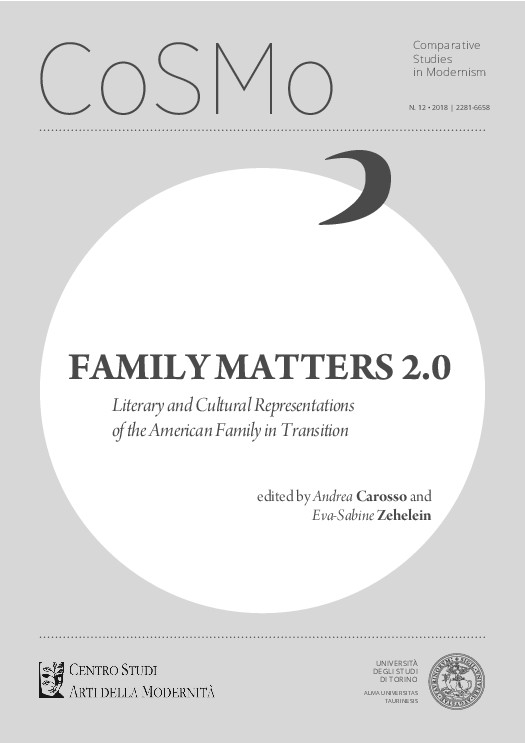Like Mother like Daughter, like Father like Son: The Spell of Youth on “The O.C.”
DOI:
https://doi.org/10.13135/2281-6658/2583Keywords:
teen drama, cultura giovanile, serie televisiveAbstract
This essay aims to shed light on the purposes served by parental figures in the television series The O.C. (2003-2007). For the teen-drama genre, Josh Schwartz’s creation set a new trend of intergenerational narratives and shifted the perspectives among young and adult, and female and male characters. In addition to being functional to the plot and legitimizing the problems experienced by young viewers, parental figures serve at least two additional purposes on The O.C.. First, I posit that adults act as positive and negative role models that allow Schwartz’s show to function as a cautionary tale for its young viewers. Second, I propose that subplots revolving around parents allowed the showrunner to broaden the potential audience of the series, by targeting adults in addition to teen viewers. I finally suggest that, as most of the show’s characters – parents and children alike - engage in youthful behavior, the series also seems to promote and perpetuate what sociologist Marcel Danesi has defined the “Forever Young Syndrome” – a kind of society where the generational gap is almost nonexistent and adults systematically behave, and inevitably consume, like teenagers.
Downloads
Downloads
Published
Issue
Section
License
Authors keep the copyrights for their work and give the journal the work’s first publication copyright, which is at the same time licensed under a Creative Commons License – Attribution, which in turn allows other parties to share the work with an acknowledgement of the work's authorship and initial publication in this journal.
Content Licence

You are free to copy, distribute and transmit the work, and to adapt the work. You must attribute the work in the manner specified by the author or licensor (but not in any way that suggests that they endorse you or your use of the work).
Metadata licence

CoSMo published articles metadata are dedicated to the public domain by waiving all publisher's rights to the work worldwide under copyright law, including all related and neighboring rights, to the extent allowed by law.
You can copy, modify, distribute and perform the work, even for commercial purposes, all without asking permission.






